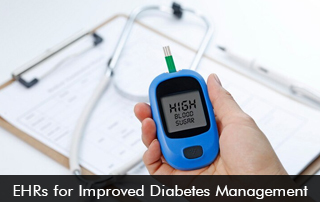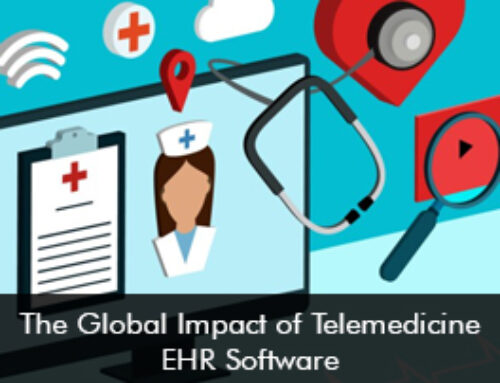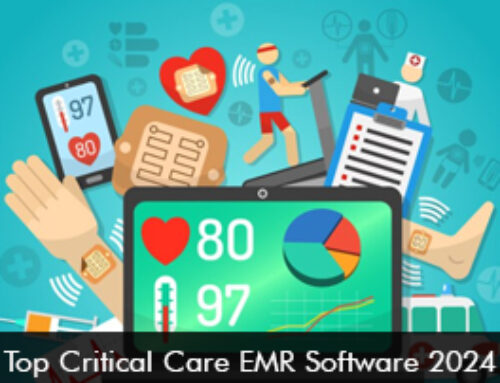The introduction of Electronic Health Records (EHRs) is a significant technical advance that is radically altering the way that we handle the diagnosis, treatment, and management of chronic illnesses like diabetes in the fast-paced healthcare environment of today. There has never been a more pressing need for healthcare solutions that are accurate, efficient, and customized to meet each patient’s unique demands as the diabetes pandemic continues to spread. This blog article delves further into the world of EHRs on the pages that follow, revealing how they have a game-changing impact on how we improve diabetes treatment and management.
The Diabetes Challenge
There is much more to this task than just controlling blood sugar levels. It includes a variety of elements, such as dietary decisions, lifestyle adjustments, medication adherence, and the ongoing need for routine checkups. Diabetes care is a complicated jigsaw with many moving parts, and each component is essential to achieving optimum health and well-being. Healthcare must be equipped with cutting-edge tools in addition to knowledge and expertise to meet this enormous task and provide patients the all-encompassing, individualized care they want and deserve.
The Diabetes Epidemic:
Diabetes, both type 1 and type 2, has reached epidemic proportions globally. It affects millions of lives and places a tremendous burden on healthcare systems and economies. The diabetes challenge is multifaceted, encompassing the management of blood sugar levels, medication adherence, lifestyle adjustments, and regular check-ups.
Understanding EHRs:
Electronic Health Records (EHRs) are the digital spine of contemporary healthcare, but when they are used to the complex field of diabetes treatment, their relevance becomes even more profound. In the battle against diabetes, they are the designers of effectiveness, accuracy, and individualized care—not just a storehouse of medical data.
Why EHRs Matter:
EHRs are essentially the digital equivalents of conventional medical records kept on paper. Still, their worth is more than just digital records. All patient health information, including medical histories, current medical conditions, prescription drugs, test results, and more, is collected and consolidated into an ecosystem that is included within electronic health records (EHRs). This digital revolution facilitates seamless and ongoing treatment for people with diabetes by organizing information and guaranteeing that it is accessible to authorized healthcare practitioners.
EHRs and Diabetes Care
With its ability to provide thorough complications tracking, faster medication management, and real-time blood glucose monitoring, EHRs have completely changed the way diabetes treatment is provided. By empowering patients to actively participate in their treatment and providing healthcare practitioners with data-driven insights, they transform managing diabetes into a cooperative path towards improved health.
Personalized Diabetes Management:
EHRs are not one-size-fits-all; they are tailored to diabetes management. These systems allow healthcare providers to create personalized care plans that cater to each patient’s unique needs.
Tracking Blood Glucose Levels:
One of the standout features of EHRs is their capacity to facilitate real-time monitoring of blood glucose levels. This enables both patients and healthcare providers to closely track fluctuations and intervene as needed.
Medication Management:
EHRs assist in the management of diabetes medications, ensuring that the right medications are prescribed, dosages are accurate, and the risk of drug interactions is minimized.
Complications Management:
For individuals living with diabetes, complications like retinopathy and neuropathy are a concern. EHRs provide a platform for tracking and managing these diabetes-related complications.
Real-World Impact
Case Studies:
Success stories and case studies illustrate the real-world impact of EHRs on diabetes management. These stories highlight how EHRs have led to improved diabetes control and reduced complications.
Data-Driven Decisions:
EHRs empower healthcare providers to make data-driven decisions. The availability of real-time patient data means that interventions are timely, enhancing the quality of care and patient outcomes.
Telehealth Services:
Telehealth has gained prominence, especially in the wake of the COVID-19 pandemic. EHRs play a pivotal role in facilitating telehealth services for diabetes patients, ensuring remote monitoring and consultations, particularly beneficial for those in underserved or remote areas.
Challenges and Future Developments
Data Security and Privacy:
With the digitization of health records comes concerns about data security and privacy. Protecting patients’ sensitive health information is paramount.
Interoperability:
Interoperability remains a challenge in the EHR landscape. Ensuring that different EHR systems can seamlessly share data is an ongoing concern for the healthcare industry.
Patient Engagement:
The full potential of EHRs in diabetes management is realized when patients are engaged and educated about their condition. This patient-provider partnership is crucial for effective care.
Future Innovations:
The future holds promise for EHRs in diabetes management. Advancements in artificial intelligence and predictive analytics are on the horizon, promising even more efficient and effective care.
An electronic lifeline in the fight for better diabetes care is the emergence of electronic health records. They facilitate telehealth services, offer real-time data for decision-making, and simplify and customize treatment plans. Even if there are still issues with data security and interoperability, EHRs and their use in the treatment of diabetes have a promising future. EHRs continue to represent a ray of hope for better diabetes control and overall health as the healthcare environment changes.







